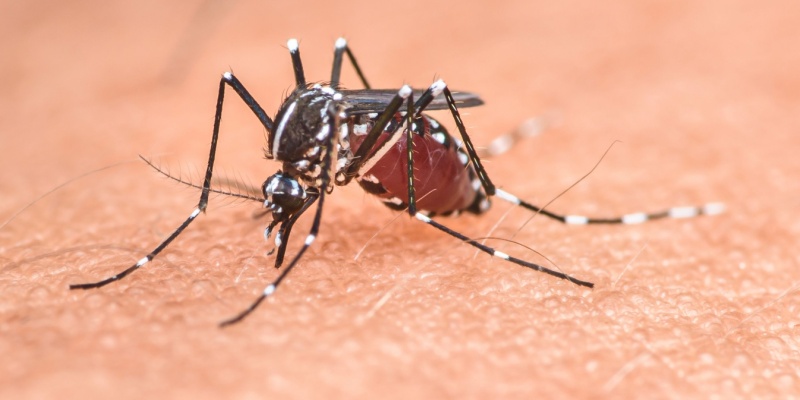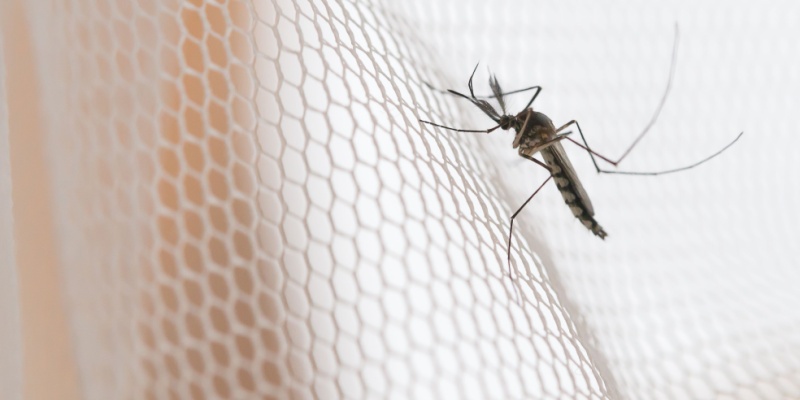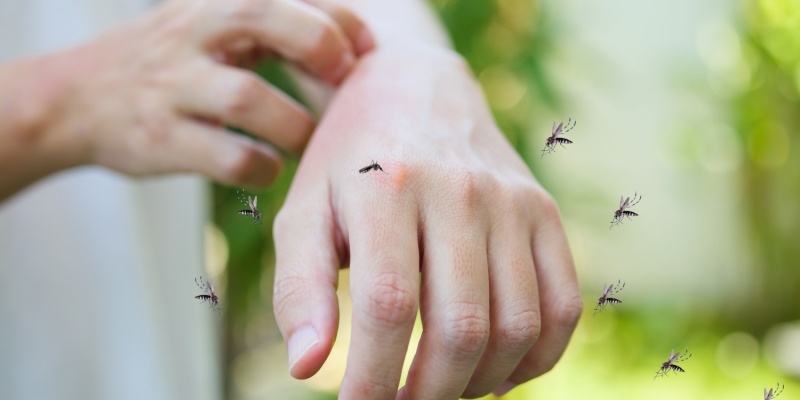While mosquitoes are often regarded as merely annoying summer pests, they can pose serious health risks to Maine residents. These tiny insects can transmit several dangerous diseases through their bites. At Atlantic Pest Control, we believe that understanding these risks is the first step toward protecting yourself and your family during Maine’s mosquito season.
Mosquito-Borne Diseases Present in Maine
Several mosquito-borne illnesses have been documented in Maine, with the most concerning being:
Eastern Equine Encephalitis (EEE)
Eastern Equine Encephalitis is one of the most severe mosquito-transmitted diseases in the United States and has been detected in Maine. Though rare, EEE is extremely serious, with approximately 30% of human cases resulting in death and many survivors experiencing permanent neurological damage.
EEE typically has an incubation period of 4-10 days after being bitten by an infected mosquito. The disease progresses quickly, often leading to inflammation of the brain (encephalitis).
West Nile Virus (WNV)
West Nile Virus has become established in Maine and presents a recurring seasonal threat. While approximately 80% of people infected with WNV show no symptoms, about 20% develop West Nile fever, and a small percentage develop severe neurological illness.
In severe cases, WNV can cause encephalitis or meningitis (inflammation of the brain or surrounding tissues), which may result in long-term complications or death.
Jamestown Canyon Virus (JCV)
Jamestown Canyon virus is transmitted by several mosquito species and has been identified in Maine. Many people infected with JCV do not develop symptoms, but those who do may experience:
JCV cases tend to occur from late spring through mid-fall, with peak transmission during the summer months when mosquito activity is highest.
Risk Factors for Mosquito-Borne Diseases in Maine
Several factors contribute to the risk of mosquito-borne disease transmission in Maine:
Geographic Location
Coastal areas and locations near wetlands, lakes, and other water bodies often have higher mosquito populations and potentially higher disease risk. Many communities in southern and coastal Maine have detected mosquito-borne viruses in recent years.
Seasonal Timing
In Maine, mosquito-borne disease risk is highest from July through September, though this can extend earlier or later depending on weather conditions. Late summer typically presents the greatest risk as virus prevalence in mosquito populations increases over the season.
Outdoor Activity Patterns
People who spend significant time outdoors, particularly during dawn and dusk when mosquitoes are most active, have increased exposure risk. Occupations and recreational activities that involve extended time in wooded or wetland areas may also increase exposure.
Age and Health Status
Certain populations face higher risks from mosquito-borne diseases:
- Adults over 50 years old
- Children under 15
- People with compromised immune systems
- Individuals with certain medical conditions
Prevention Strategies
Protecting yourself and your family from mosquito-borne diseases requires a multi-faceted approach:
Personal Protection:
- Use EPA-registered repellents containing DEET, picaridin, IR3535, or oil of lemon eucalyptus when outdoors.
- Wear protective clothing such as long sleeves, long pants, and socks when outdoors, particularly during peak mosquito activity periods.
- Schedule outdoor activities to avoid dawn and dusk hours when mosquitoes are most active.
- Install and maintain tight-fitting window and door screens to keep mosquitoes out of your home.
- Consider permethrin treatment for clothing and outdoor gear if you spend extensive time outdoors.
Habitat Reduction:
1. Eliminate standing water around your property where mosquitoes breed, including:
- Buckets and containers
- Clogged gutters
- Birdbaths (change water weekly)
- Unused pools or hot tubs
- Tarps and boat covers that collect water
- Old tires
- Plant pots and saucers
2. Maintain your yard by keeping grass cut short and reducing overgrown vegetation where adult mosquitoes rest.
3. Address drainage issues that create persistent puddles or wet areas on your property.
Professional Mosquito Control
Professional mosquito management from Atlantic Pest Control offers the most comprehensive protection by:
- Identifying and treating breeding sites that homeowners might miss
- Applying targeted barrier treatments that reduce adult mosquito populations around your home
- Implementing Integrated Pest Management strategies that provide long-term population reduction
- Offering seasonal protection plans tailored to your property’s specific needs
How Atlantic Pest Control Can Help
As experts in mosquito management, we offer comprehensive services to reduce mosquito populations and disease transmission risk on your property:
- Property Assessment: We identify mosquito breeding and harborage areas specific to your property.
- Customized Treatment Plans: Based on your property’s unique features, we develop targeted approaches that may include larvicide applications, barrier treatments, and habitat modification recommendations.
- Ongoing Protection: Our seasonal mosquito control program provides regular treatments from late spring through early fall, ensuring continuous protection during Maine’s mosquito season.
Understanding the risks associated with mosquito-borne diseases and taking appropriate preventive measures can help ensure that you and your family enjoy Maine’s beautiful outdoor spaces safely. Contact Atlantic Pest Control today to learn more about our effective mosquito management solutions.


